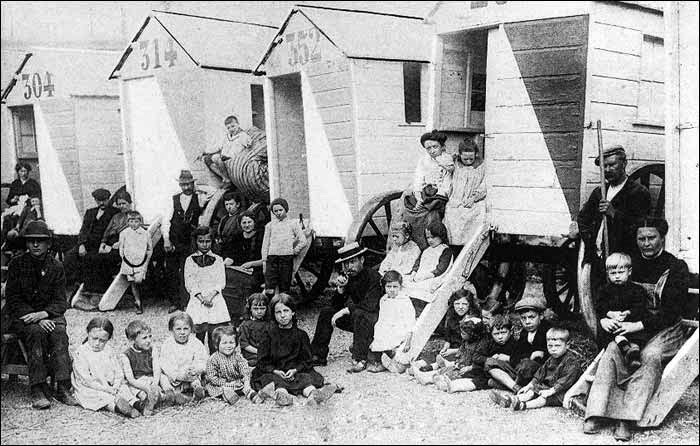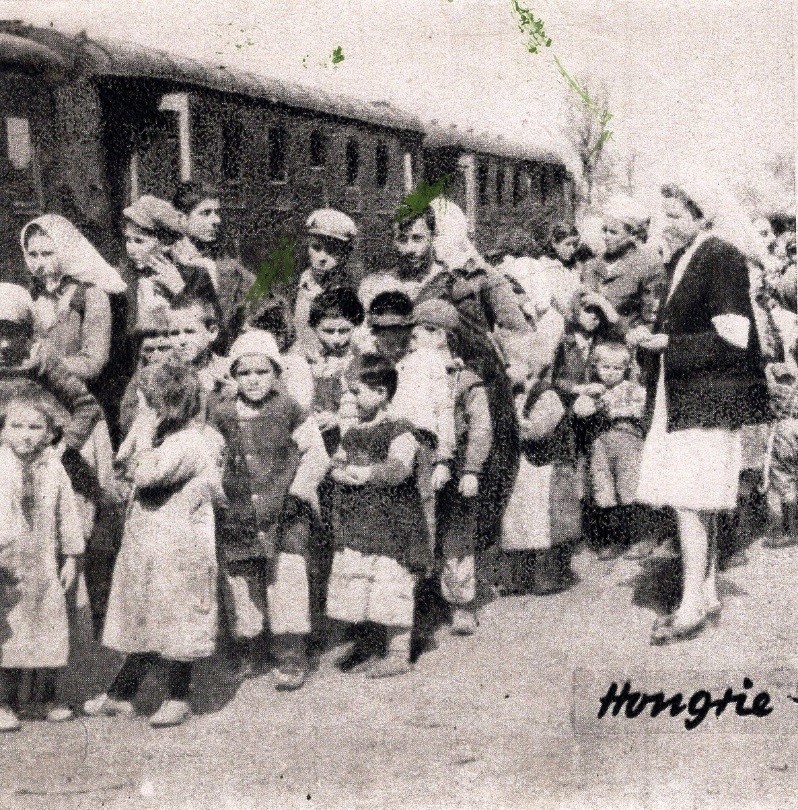Journey/frontiers
08/10/2019
This excerpt is one of the narratives offered to the CON-FRONT artists as an inspiration for the creation. It is based on the work done by the CON-FRONT project partners and the supporting heritage partners. Throughout different movements, which can be seen as common and recurring momentums and themes in the war refugee stories collected for the project, different refugee voices are heard.
Journey/frontiers
The journey creates us. We become the frontiers we cross. (Salman Rushdie)
The three/four-day train journey from Den Abele-Hazebroeck to Lannion did provide a sense of relief, but it was far from fun. Relief: we had escaped the bombs, violence of war and mortal danger, but the ten of us were packed into a single train compartment in a seated position. The old-fashioned train compartments had no side corridor, or WC, but did have a door on both sides with windows that slid up and down. Just imagine it: two adults, two teenagers, three just under the age of ten and three little ones, the youngest of which was almost three.
We didn’t have to do everything, but quite a lot in this compartment. There were hours of train stoppages (e.g. Rouen) and the nights were extremely unsettling, also due to the rolling and pounding of carriages and machines. At certain points the locomotives were exchanged, brakes and buffers inspected. However, everything could be found at the stations: water, toilet facilities, Le Foyer du Soldat meals. This provided much relief. Meanwhile, nobody knew where we would end up: we were being transported by God’s hand to God in France.
And we were optimistic. This optimism – and the relief – occasionally lifted the mood: us children started singing. The story goes that we endlessly sang: “Are we still far from Mexico, cico, cico…’, a tune our elders soon started to find tiresome! Yet we were getting closer, after days and nights, to a certain and safe destination. We wanted to go to France, and we were there: far and deep inside the country.
[Belgian Jozef Debusschere (10 years old) reports in his diary of his escape to France]
On 18 and 20 November 1992, the Petronijević family was escorted by convoys, with a common passport, via Split and Belgrade, from Sarajevo to Ljubljana. Ida had a chance to save her two teenage children and her husband from seven months siege of Sarajevo, because she had a Slovenian father.
[Ida Petronijević and her family were evacuated during the Sarajevo Siege as part of a Slovenian relief program]
What followed was a journey on foot through the mountains. It was bitterly cold and I was totally unprepared for it. I was hungry and thirsty. The only thing we were given to drink was something that was supposed to resemble water. I drank it through my garment to filter it a little. It was black and tasted of urine… We travelled from Kabul, through Iran to the border with Turkey. There, at the border it started to dawn on me: this trip was a one way journey. I began to panic and wanted to go back but I was threatened with a knife and had to keep going.
Different smugglers took over in Turkey. We were crammed into a car that raced through the country at high speed. We were involved in a serious accident on the way. We were hit by a truck. The car started to spin and I threw my hands up to my head to protect myself. I thought I was going to die and began to pray. When the vehicle finally came to a standstill, I managed to crawl out. There were many wounded and smoke was coming from the car, the smell of fuel tickled my nose. I managed to reach a nearby forest along with another boy. We hid there. My foot was swollen and I could barely walk.
After the accident the police arrived on the scene relatively quickly. They searched the area with large torches. The boy I was with wanted to jump up and walk towards them but I stopped him. I covered his mouth with my hand so that he couldn’t scream; he was in shock. I short while later the police drove off. We stayed there all night. The next day we were woken by the first rays of sunshine. I thought it was too dangerous to stay there and urged the boy to leave our hiding place. We carried on our journey together. We stopped at a stall selling sunflower seeds. There I was able to make contact again with a smuggler. Later a taxi picked us up and we were taken to the coast.
We had to take a seat in a kind of speedboat, with fifty people in such a small vessel… I was petrified, scared of the water, scared of drowning, … I began praying again, the verses of the Koran gave me strength and I calmed down. After sailing for an hour, we had to transfer to another boat, in the middle of the sea. There were 240 of us on that boat. It was not very big but there were two levels. We travelled for fifteen hours and were then intercepted by the Italian police. After everything I had endured, I was afraid the police would send me back. I managed to reach the mainland on my own and fled into the woods.
[Assadullah, born in Qarghayi, Afghanistan and currently living in Belgium]
In Calais we were startled by the number of people. We were shown the way to our maritime station and when we arrived and saw the boat you could see the misery on
people’s faces. The boat was already half full of refugees from the day before so we had to go back or wait for another boat.
We lay below deck and had no more than two metres for seven people; just enough to lie down, our bundles serving as pillows. The vessel was 65m long and was called ‘Duinkerke’. It was a goods vessel that now had to serve to transport refugees. People were also aware of a terrible smell. It was as though we were in a fish market; the boat left a lot to be desired, nevertheless we had to keep the peace and focus on the fact that it was our salvation. (…)
Night fell and the sea became wilder and more tempestuous. You could hear people sighing, what is to become of our children and us? Mothers complained and moaned, children whimpered and the night was terrible, the relentless rocking and swaying. I don’t believe anyone slept half an hour all night.
[Jan Van de Meerssche, a Belgian refugee who fled to France during World War 1]




